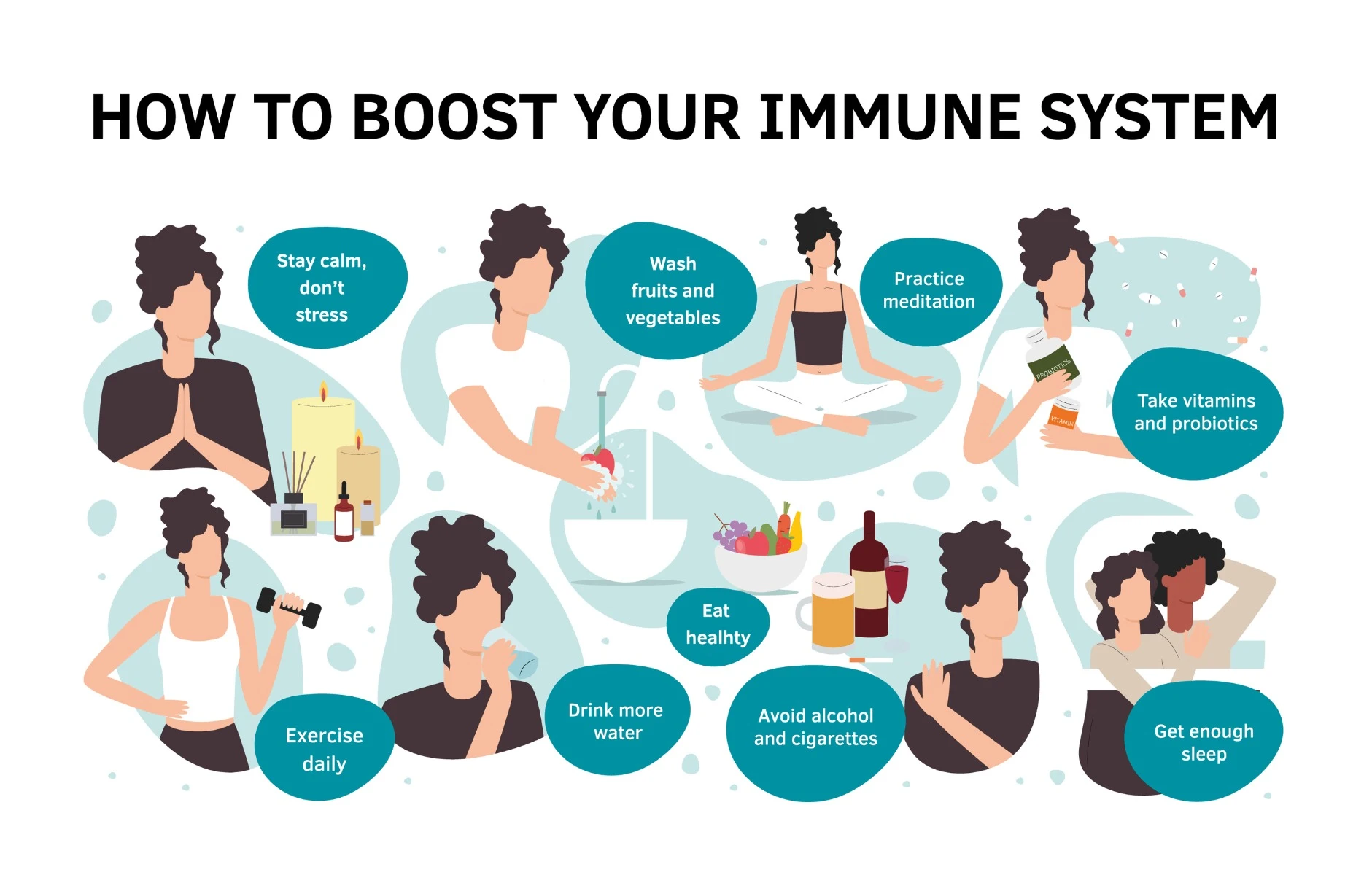How to Boost Your Immune System
In today’s fast-paced world, maintaining a strong and healthy immune system is crucial for overall well-being. Your immune system acts as a shield against harmful pathogens, viruses, and diseases, and keeping it robust can significantly contribute to your overall health. This article will provide you with practical tips and insights on how to boost your immune system naturally and effectively.
Introduction
Our immune system is a complex network of cells, tissues, and organs that work together to defend our bodies against harmful invaders. By adopting a few lifestyle changes and incorporating healthy habits into our daily routines, we can enhance our immune response and reduce the risk of illnesses.
Understanding the Immune System
Before diving into the strategies for boosting your immune system, it’s essential to understand how it functions. The immune system consists of two main parts: the innate immune system and the adaptive immune system. The innate system provides immediate defense mechanisms, while the adaptive system learns and adapts to specific threats over time.
Balanced Diet and Hydration
A well-balanced diet rich in vitamins, minerals, and antioxidants plays a vital role in supporting the immune system. Include plenty of fruits, vegetables, whole grains, lean proteins, and healthy fats in your daily meals. Stay hydrated by drinking an adequate amount of water throughout the day, as it helps in flushing out toxins and maintaining optimal bodily functions.
Also read 👌🤳 તમેં પાડેલ સેલ્ફીના પાછળ તાજમહેલ, એફિલ ટાવર કે ફ્રાન્સ અને પેરિસનું બેકગ્રાઉન્ડ મુકો, આ ધાસુ એપ્લિકેશન વડે…🙈
Regular Exercise and Physical Activity
Engaging in regular physical activity not only helps manage weight but also strengthens the immune system. Aim for at least 30 minutes of moderate exercise, such as brisk walking, swimming, or cycling, most days of the week. Exercise improves blood circulation, reduces stress, and enhances the efficiency of the immune system.
Sufficient Sleep and Stress Management
Quality sleep is crucial for maintaining a healthy immune system. Aim for 7-8 hours of uninterrupted sleep each night. Additionally, prioritize stress management techniques such as meditation, deep breathing exercises, or engaging in hobbies to keep stress levels in check. Chronic stress can weaken the immune system and make you more susceptible to illnesses.
Vitamin C and Antioxidant-Rich Foods
Vitamin C is known for its immune-boosting properties. Include citrus fruits, berries, leafy greens, and bell peppers in your diet to increase your vitamin C intake. Antioxidant-rich foods like blueberries, spinach, and nuts help reduce inflammation and protect cells from damage.
Probiotics and Gut Health
Maintaining a healthy gut flora is essential for a robust immune system. Consume probiotic-rich foods like yogurt, kefir, sauerkraut, and kimchi to support the growth of beneficial bacteria in your gut. A healthy gut helps regulate the immune response and prevents the overgrowth of harmful pathogens.
Adequate Hygiene Practices
Practicing good hygiene habits is crucial in preventing the spread of infections. Wash your hands regularly with soap and water for at least 20 seconds, especially before eating and after using the restroom. Avoid touching your face unnecessarily, as it can introduce germs into your body.
Sunlight and Vitamin D
Sunlight exposure helps the body produce vitamin D, a nutrient essential for a well-functioning immune system. Spend some time outdoors each day, preferably in the early morning or late afternoon when the sun’s rays are less intense. If sunlight is limited, consider taking a vitamin D supplement after consulting with a healthcare professional.
Limiting Alcohol Consumption
Excessive alcohol consumption can impair the immune system and make you more susceptible to infections. Limit your alcohol intake to moderate levels or avoid it altogether to maintain a healthy immune system.
Quit Smoking
Smoking damages the immune system and increases the risk of respiratory infections. Quitting smoking not only improves lung health but also enhances immune function. Seek support from healthcare professionals or support groups to help you in your journey to quit smoking.
Herbal Supplements and Adaptogens
Certain herbal supplements and adaptogens, such as echinacea, ginseng, and astragalus, have been traditionally used to support immune health. Consult with a healthcare professional before incorporating any supplements into your routine to ensure their safety and effectiveness.
Stay Hydrated
Adequate hydration is essential for the optimal functioning of your immune system. Drink water regularly throughout the day and limit the consumption of sugary beverages or caffeinated drinks.
Regular Health Check-ups
Regular health check-ups and screenings can help identify any underlying health conditions that may affect your immune system. Schedule routine visits with your healthcare provider to ensure you are in good health and address any concerns promptly.
Conclusion
Boosting your immune system is a proactive approach to maintaining overall health and well-being. By adopting a balanced diet, engaging in regular exercise, prioritizing sleep and stress management, and implementing good hygiene practices, you can strengthen your immune response and reduce the risk of illnesses.
FAQs
1. Can supplements alone boost my immune system?
Supplements can complement a healthy lifestyle but should not be relied upon solely to boost the immune system. It is important to focus on a well-balanced diet and lifestyle habits.
2. Are there specific foods that can enhance immune function?
Certain foods, such as citrus fruits, garlic, ginger, and turmeric, are known for their immune-boosting properties. Including these foods in your diet can support a healthy immune system.
3. Can exercise have a negative impact on the immune system?
Regular moderate exercise is generally beneficial for the immune system. However, intense and prolonged exercise without adequate rest can temporarily suppress immune function.
4. Is it necessary to take vitamin supplements for immune health?
If you have a well-balanced diet and no underlying deficiencies, you may not require vitamin supplements. However, it’s always best to consult with a healthcare professional to assess your individual needs.
5. Can stress affect the immune system?
Chronic stress can weaken the immune system and make you more susceptible to infections and illnesses. Incorporating stress management techniques into your routine can help support immune health.


